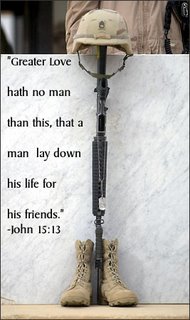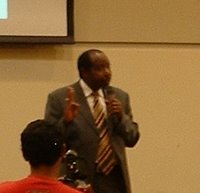On this day in 1517, Martin Luther posted his 95 Theses to the door of Castle Church in Wittenberg, Germany. The world hasn't been the same since.
Luther, a Augustinian monk, spent his life in fear of God's judgement. He saw no hope for salvation in the Church, which had begun focusing on works as a means for salvation, and using Purgatory as a tactic for selling indulgences.
Luther went to Wittenberg to study at the University, earned his doctorate, and most importantly, realized the importance of salvation by grace through faith.
After the posting of the Theses, Luther was excommunicated, but refused to recant, leading to his famous saying at the Diet of Worms:
Hier stehe ich; kann ich keine andere tun; Gott helfe mir.
Which, translated, is "Here I stand, I can do no other. God help me."
As Luther continued to preach, many of the local princes followed him. While it was a long time before true religious freedom was found, it broke the Roman Catholic church's five-hundred year monopoly on western Christianity. The Reformation also served to divide the Holy Roman Empire between the Protestant and Catholic states, a pretty distinct line between north and south.
The Reformation and Counter-Reformation brought the Renaissance into the Church. Luther utilized the movable-type printing press (developed by Johannes Gutenberg a century earlier), the vernacular, and wood-print cartoons to spread his word (Albrecht Duerer was heavily influenced by Luther). The Catholic Church utilized art to combat Luther's teaching.
But perhaps the most important impact of the Reformation was that it brought religious life out of its stagnant state throughout Europe. After Luther posted the Theses, the average citizen started to stand up and take notice of what was going on.
Rock on.
Edited and expanded on 31 October 2008.

